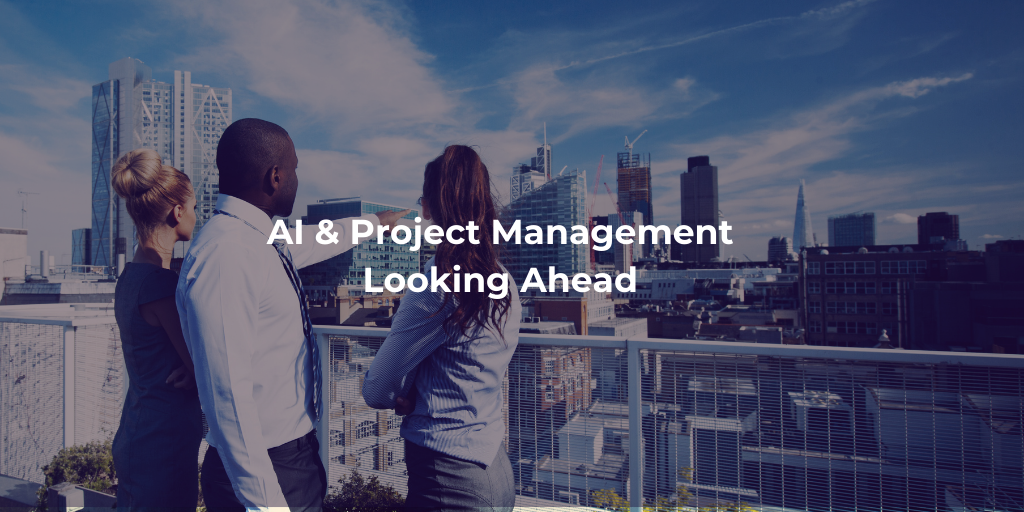Categories
Tags
Newsletter
Subscribe to the QRP International neswletter and get all the news on trends, useful contents and invitations to our upcoming events
Subscribe
The COVID-19 pandemic has had a major impact on many people and the global economy, but it has also triggered an inevitable process of digital transformation, which continues to influence the working lives of professionals and organisations today.
Since 2023, managers have recognised the importance of digitalisation. A PMI survey of 1,764 IT and business executives across 21 industries reveals that more than 1,170 executives have seen a significant impact on their organisations. However, by 2025 only 1 out of 5 believes their organisation has achieved sufficient agility to tackle the digitisation process, which includes various technologies, including Artificial Intelligence (AI) (IBN, 2025).
AI and related technologies (Machine Learning, Deep Learning, Natural Language Processing) have been the subject of research for years. Over the past two decades, increases in computing power and language processing have enabled AI to approach the cognitive abilities of humans.
More recently, enthusiasm for the possibilities offered by Generative AI has led many organisations to introduce AI-supported processes and replace existing processes and human resources with AI-based processes, which are considered to be more efficient.
The initial implementation of processes and tools with AI components has led to significant benefits such as process optimisation, cost reduction and efficiency improvements. However, the introduction of AI into the workplace has not only brought about positive changes.
Several jobs have been replaced by AI tools:
It is clear that AI tools and processes have quickly become an integral part of the services offered by companies in all sectors. In some cases, such as Microsoft, which confirmed in May 2025 that 30% of the company’s code is written by AI, these are procedural changes with significant consequences for the organisation’s core business.
In 2025, approximately 40 million professionals are qualified Project Managers. Recent research conducted by PMI’s “Global Project Management Talent Gap” has highlighted that 65 million professionals will be needed by 2035 to meet new demands.
The significant gap in qualified Project Managers that will arise, with a 64% increase in demand for talent internationally, represents an important opportunity for young professionals who want to fill these types of roles.
It is essential for all Project Management professionals to understand the usefulness of Artificial Intelligence-driven tools and processes and to start using them to optimise their activities, recognising their importance as support tools. As confirmation of this trend, a recent survey conducted by Censuswide of 1,000 Project Managers found that 70% of those who use artificial intelligence in their daily workflows achieved better results and greater efficiency.
The benefits of using AI-based tools and processes for Project Managers and organisations are numerous and undeniable.
The data analysis and pattern recognition capabilities of AI tools enable managers and organisations to establish rapid decision-making processes based on real data and insights rather than predictions and personal intuition.
The use of AI processes significantly reduces the time required for change: there is no need to convince stakeholders to adopt new methodologies and complex work tools, organise meetings to get all resources involved, and respond to natural resistance to change. It is now possible to create and implement new processes that reduce workload and optimise business effort quickly, ensuring greater responsiveness and adaptability to market changes.
With an understanding of the entire AI project lifecycle, from planning to implementation, organisations and Project Managers can:
These advantages will soon represent the difference between a Project Manager capable of operating efficiently and accurately in a constantly evolving context, using AI tools to support their tasks in order to maximise the value creation of the projects they manage, and a competent professional who has not developed skills in the use of AI tools and in the management of projects with Artificial Intelligence elements and/or processes.
A similar difference will also be evident at the organisational level, where the implementation of projects with AI components and the involvement of competent Project Managers will maximise market opportunities, quickly release new products and obtain greater benefits from projects and programmes.
Do you want to learn more about how AI can bring tangible benefits to your organisation? Whether you are a professional interested in integrating artificial intelligence tools into your projects, or a manager responsible for defining the overall strategy, we have the right AI training course for you! Find out more by visiting our website or contacting us!